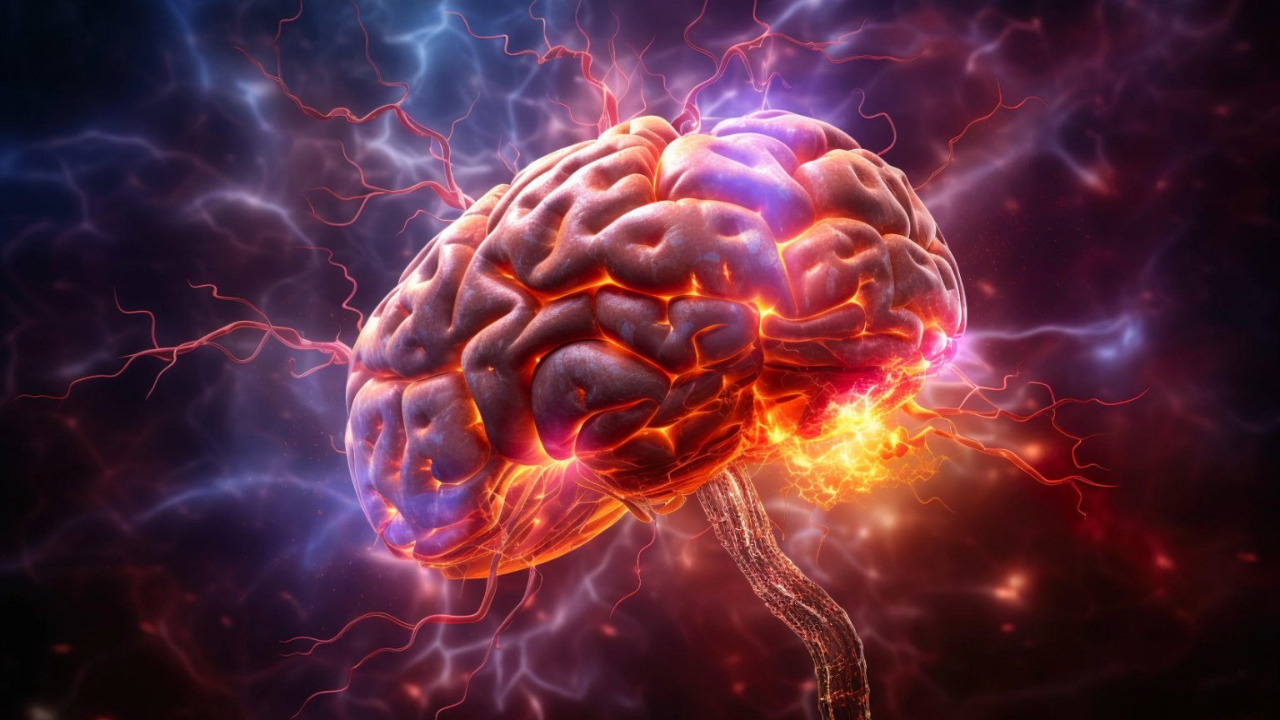Unlocking the Mind: How Neuroscience-Based Strategies Can Enhance Your Everyday Life
Nov 04, 2025
Imagine tapping into the hidden potential of your mind to enhance your everyday life. The field of neuroscience offers groundbreaking insights that can transform how you think, feel, and act. In an age where we are often overwhelmed by information, finding simple yet effective strategies to optimize our mental processes is vital. From boosting productivity at work to improving relationships at home, the secrets of the brain can be your ultimate guide. This article will explore practical neuroscience-based strategies that can elevate your daily experiences. Whether it’s mastering the art of focus or cultivating resilience in the face of challenges, the tools you need to unlock your mind's full capabilities are within reach. Join us on a journey into the fascinating intersection of neuroscience and daily living and discover how you can change your life today.
Understanding the Brain: Key Concepts in Neuroscience
To unlock the full potential of our minds, it's essential to first understand the basics of how our brains function. The brain, a complex organ composed of approximately 86 billion neurons, functions as the control center for all our thoughts, feelings, and actions. Neurons communicate with each other through synapses, forming intricate networks that underpin our cognitive and emotional experiences. This communication happens through electrochemical signals, which are critical for everything from recalling a memory to solving a problem.
One fundamental concept in neuroscience is neuroplasticity, which refers to the brain's ability to reorganize itself by forming new neural connections throughout life. This adaptability is crucial for learning and recovery from injuries. The brain's plasticity means that our mental capabilities are not fixed; they can be enhanced and optimized through various activities and interventions. Understanding this can empower us to make intentional changes that can positively affect our cognitive abilities and overall mental health.
Another key concept is the role of neurotransmitters, chemical messengers that transmit signals between neurons. Different neurotransmitters influence our mood, attention, and motivation. For example, dopamine is associated with pleasure and reward, while serotonin plays a role in mood regulation. By understanding how these chemicals work, we can better comprehend how to influence our mental states and improve our daily experiences.
The Science of Neuroplasticity: Changing Your Brain for the Better
Neuroplasticity is one of the most exciting areas of neuroscience because it reveals that our brains are dynamic and malleable. This adaptability means that we can reshape our cognitive and emotional patterns through intentional practices. For instance, learning a new skill, such as playing a musical instrument or speaking a foreign language, can create new neural pathways and strengthen existing ones.
The principles of neuroplasticity suggest that the brain can be trained much like a muscle. Cognitive exercises and challenges that push the brain beyond its comfort zone encourage the growth of new synaptic connections. This process, known as synaptogenesis, enhances our ability to think critically, solve problems, and retain new information. Regular mental stimulation is therefore crucial for maintaining cognitive health and preventing mental decline as we age.
Moreover, neuroplasticity is not limited to cognitive functions; it also affects our emotional well-being. Techniques such as cognitive-behavioral therapy (CBT) leverage the principles of neuroplasticity to help individuals reframe negative thought patterns and develop healthier emotional responses. By consistently practicing these techniques, we can rewire our brains to respond more positively to stress and challenges, leading to improved mental resilience and overall well-being.
Practical Neuroscience: Everyday Strategies for Mental Enhancement
Incorporating neuroscience-based strategies into our daily routines can significantly enhance our mental capabilities. One practical approach is to engage in activities that stimulate different parts of the brain. For example, solving puzzles or playing strategic games like chess can improve logical thinking and problem-solving skills, while creative pursuits such as painting or writing can enhance emotional expression and creativity.
Another effective strategy is to practice mindfulness and meditation. These techniques have been shown to alter brain structure and function, particularly in areas related to attention, self-awareness, and emotional regulation. By dedicating just a few minutes each day to mindfulness practices, we can cultivate a greater sense of calm and focus, which can lead to improved productivity and reduced stress levels.
It's also important to recognize the impact of our environment on our mental processes. Creating a workspace that minimizes distractions and promotes focus can enhance our ability to concentrate and complete tasks efficiently. Additionally, incorporating regular breaks and physical movement into our routine can help maintain optimal brain function and prevent mental fatigue. By making these small adjustments, we can create an environment that supports our cognitive and emotional well-being.
The Role of Mindfulness and Meditation in Neuroscience
Mindfulness and meditation have gained widespread popularity for their benefits on mental health, and neuroscience provides a scientific basis for these practices. Research has shown that mindfulness meditation can lead to structural changes in the brain, such as increased gray matter density in regions associated with learning, memory, and emotional regulation. These changes can enhance cognitive functions and improve emotional resilience.
Meditation practices encourage the brain to shift from the default mode network (DMN), which is associated with mind-wandering and self-referential thoughts, to a more focused and present state of mind. By regularly practicing mindfulness, we can train our brains to stay more present, reducing the tendency to ruminate on past events or worry about the future. This shift can lead to a greater sense of well-being and improved mental clarity.
Furthermore, mindfulness and meditation have been shown to reduce the activity of the amygdala, the brain's fear center. This reduction in amygdala activity can lead to lower levels of stress and anxiety, promoting a calmer and more balanced emotional state. By integrating mindfulness practices into our daily lives, we can harness these neuroscience-backed benefits to enhance our mental and emotional well-being.
How Nutrition Affects Brain Function and Mental Well-being
The food we consume has a profound impact on our brain function and mental well-being. Neuroscience has shown that certain nutrients can influence cognitive processes and emotional states. For instance, omega-3 fatty acids, found in fish and flaxseeds, are essential for maintaining the structure and function of brain cells. These fatty acids have been linked to improved memory, reduced inflammation, and a lower risk of neurodegenerative diseases.
Antioxidants, found in fruits and vegetables, play a crucial role in protecting the brain from oxidative stress and inflammation. Foods rich in antioxidants, such as berries and leafy greens, can enhance cognitive function and protect against age-related cognitive decline. Additionally, vitamins and minerals, such as B vitamins, vitamin D, and magnesium, are vital for neurotransmitter production and overall brain health.
It's also important to consider the impact of sugar and processed foods on the brain. High sugar intake has been associated with impaired cognitive function and an increased risk of mood disorders. On the other hand, a diet rich in whole foods, including lean proteins, healthy fats, and complex carbohydrates, can provide the necessary nutrients for optimal brain function. By making mindful dietary choices, we can support our cognitive abilities and enhance our mental well-being.
The Impact of Physical Exercise on Brain Health
Physical exercise is not only beneficial for our bodies but also for our brains. Neuroscience research has shown that regular physical activity can lead to numerous cognitive and emotional benefits. Exercise promotes the release of neurotrophic factors, such as brain-derived neurotrophic factor (BDNF), which supports the growth and maintenance of neurons. This process can enhance learning, memory, and overall cognitive function.
Aerobic exercise, in particular, has been linked to increased hippocampal volume, the area of the brain involved in memory formation. Regular aerobic activity, such as running or cycling, can therefore improve memory and protect against age-related cognitive decline. Additionally, exercise increases blood flow to the brain, providing it with more oxygen and nutrients, which can enhance mental clarity and focus.
The mental health benefits of exercise are also significant. Physical activity has been shown to reduce symptoms of depression and anxiety by promoting the release of endorphins, the brain's natural mood enhancers. Exercise can also help regulate stress hormones, such as cortisol, leading to a more balanced emotional state. By incorporating regular physical activity into our routines, we can support both our cognitive and emotional well-being.
Harnessing the Power of Sleep for Cognitive Enhancement
Sleep is a critical component of brain health and cognitive function. Neuroscience has revealed that during sleep, the brain undergoes essential processes that support learning, memory consolidation, and emotional regulation. Quality sleep is necessary for the brain to process and store new information, making it a crucial factor in cognitive enhancement.
During sleep, the brain clears out waste products and toxins that accumulate throughout the day. This cleansing process is vital for maintaining optimal brain function and preventing cognitive decline. Additionally, different stages of sleep, such as deep sleep and REM sleep, play specific roles in memory consolidation and emotional processing. Ensuring that we get enough restorative sleep can therefore enhance our cognitive abilities and improve our emotional resilience.
Sleep deprivation, on the other hand, can have detrimental effects on brain function. Lack of sleep impairs attention, decision-making, and problem-solving abilities. It can also lead to increased stress levels and emotional instability. To harness the power of sleep for cognitive enhancement, it's important to prioritize good sleep hygiene, such as maintaining a regular sleep schedule, creating a restful sleep environment, and avoiding stimulants like caffeine before bedtime.
Neuroscience and Emotional Intelligence: Improving Relationships
Emotional intelligence (EI) refers to the ability to recognize, understand, and manage our own emotions, as well as the emotions of others. Neuroscience has provided insights into the brain mechanisms underlying EI, revealing how we can enhance our emotional intelligence to improve our relationships and overall well-being.
One key aspect of EI is self-awareness, which involves recognizing our own emotional states and understanding their impact on our thoughts and behaviors. The prefrontal cortex, responsible for higher-order thinking and self-regulation, plays a crucial role in this process. By practicing mindfulness and reflection, we can strengthen our self-awareness and improve our ability to manage our emotions effectively.
Empathy, the ability to understand and share the feelings of others, is another important component of EI. Neuroscience has shown that mirror neurons, which activate when we observe others' actions or emotions, play a role in empathy. By actively listening and seeking to understand others' perspectives, we can enhance our empathic abilities and build stronger, more supportive relationships.
Effective communication is also essential for emotional intelligence. The brain's language centers, such as Broca's area and Wernicke's area, are involved in processing and expressing language. By improving our communication skills, we can better convey our emotions and understand the emotions of others, leading to more meaningful and fulfilling interactions.
Conclusion: Integrating Neuroscience Strategies into Daily Life
The insights provided by neuroscience offer valuable tools for enhancing our everyday lives. By understanding the brain's key concepts, such as neuroplasticity and the role of neurotransmitters, we can make informed choices to optimize our mental processes. Practical strategies, such as engaging in cognitive exercises, practicing mindfulness, and maintaining a healthy diet, can support our cognitive and emotional well-being.
Physical exercise and quality sleep are also essential for brain health, providing the foundation for enhanced cognitive function and emotional resilience. By prioritizing these aspects of our lifestyles, we can harness the full potential of our minds and improve our overall quality of life.
Furthermore, developing emotional intelligence through self-awareness, empathy, and effective communication can lead to stronger relationships and greater personal fulfillment. By integrating these neuroscience-based strategies into our daily routines, we can unlock the hidden potential of our minds and create a life that is both mentally and emotionally enriching.
Embracing the principles of neuroscience allows us to take an active role in shaping our mental experiences. By continuously learning and applying these strategies, we can achieve lasting improvements in our cognitive abilities, emotional well-being, and overall quality of life. The journey to unlocking the mind is ongoing, and with the right tools and knowledge, we can make meaningful strides toward a more fulfilling and empowered life.






